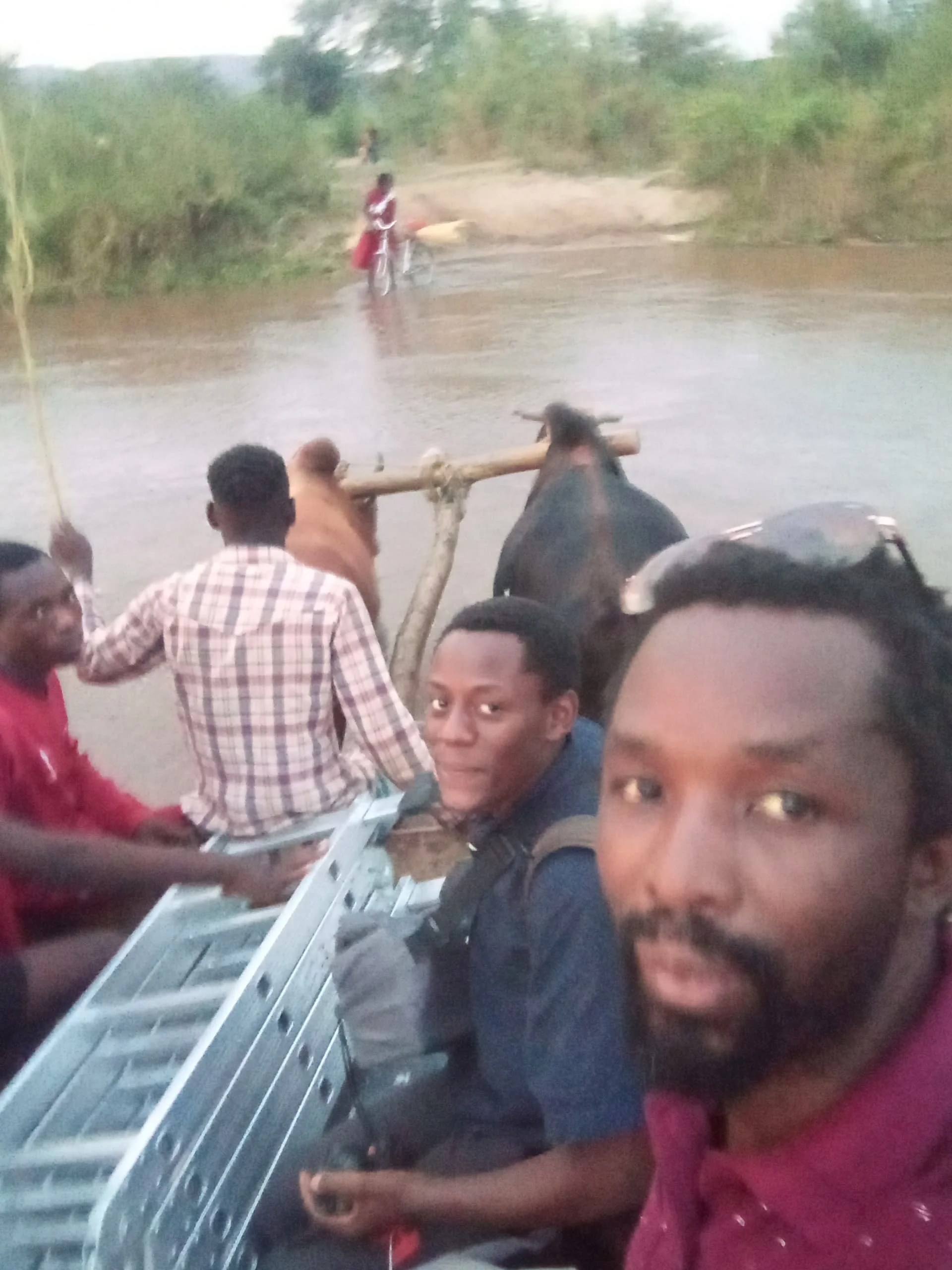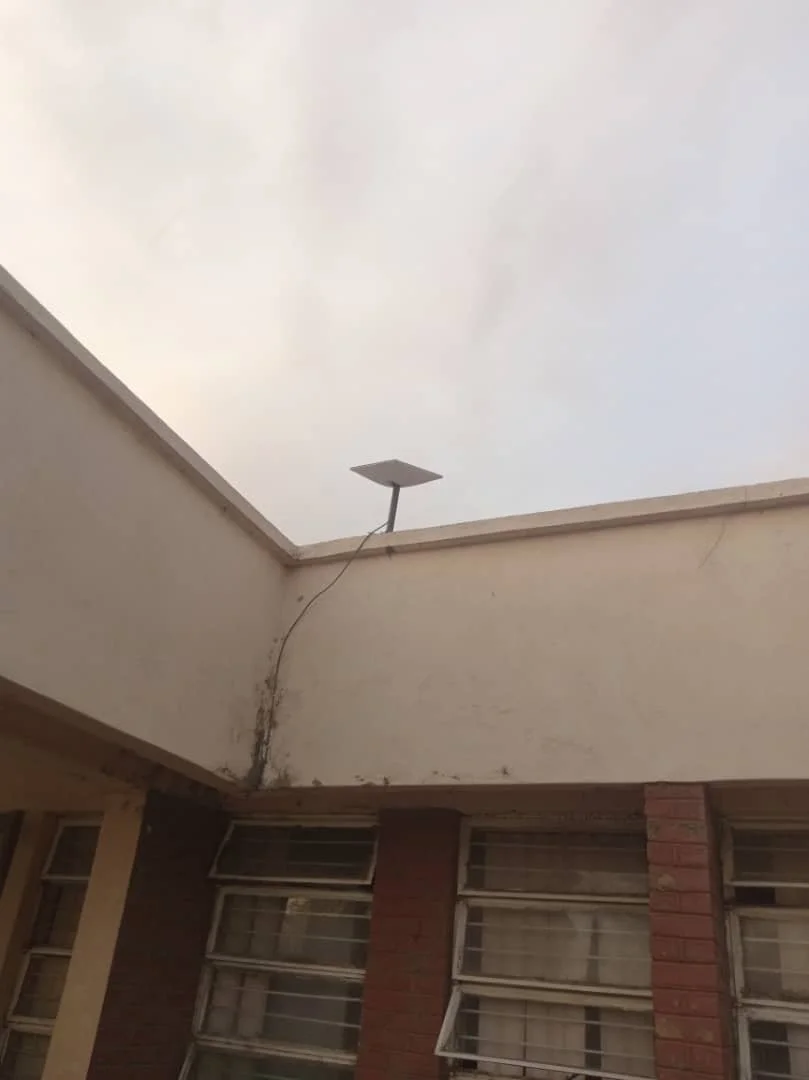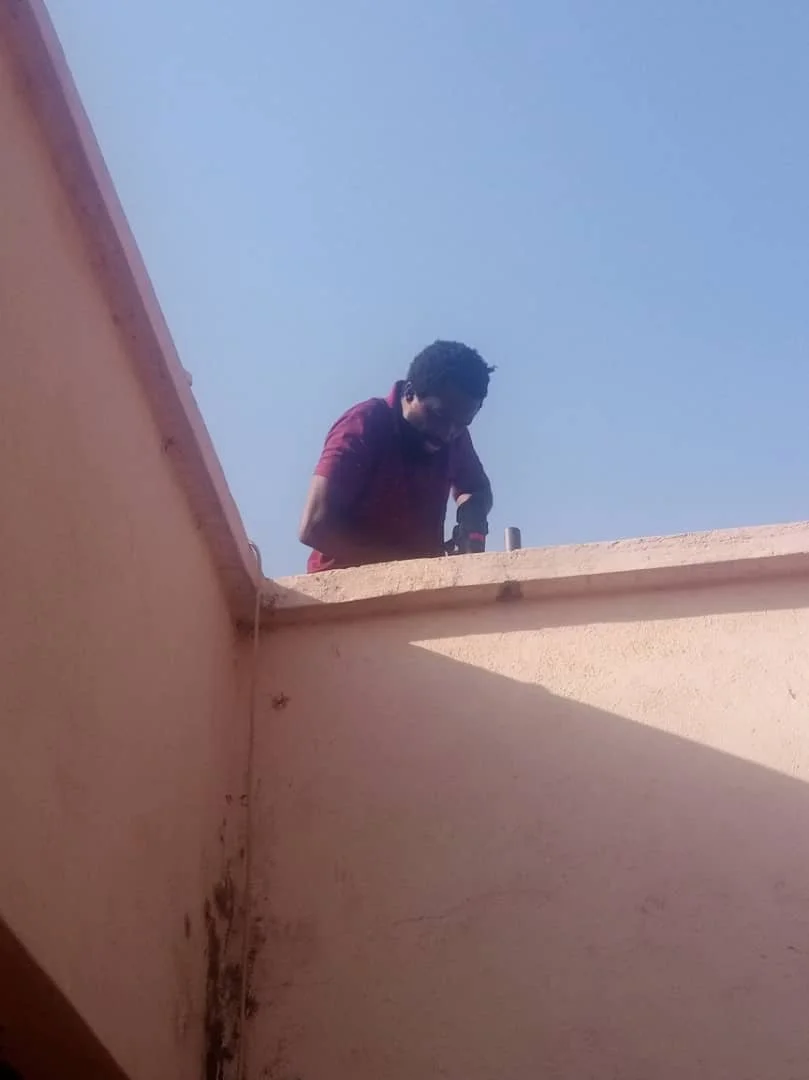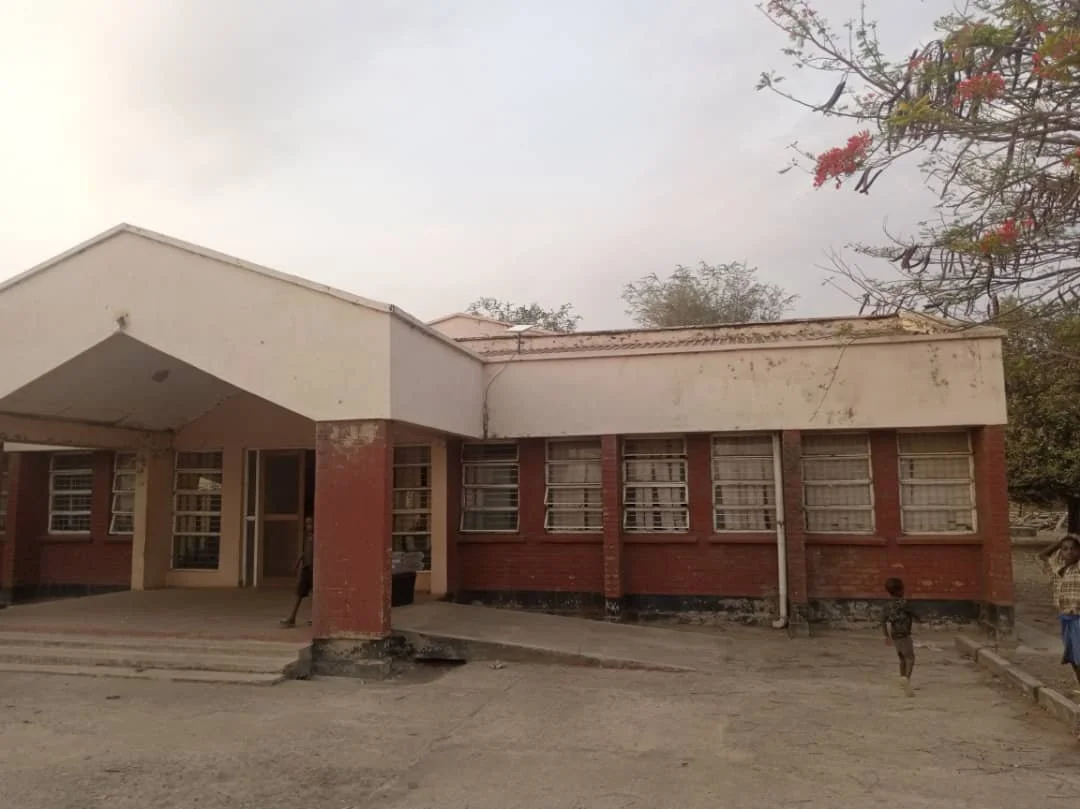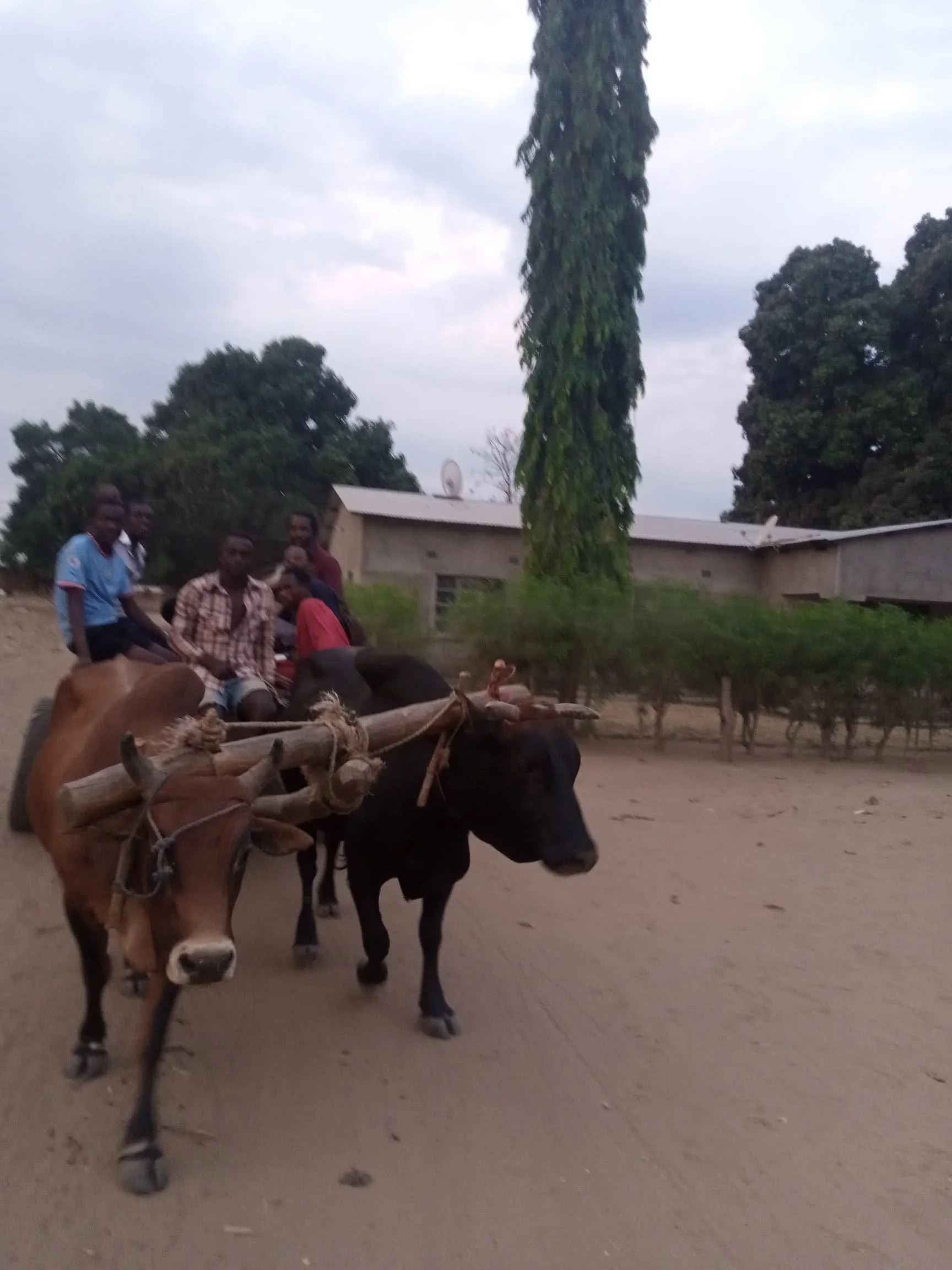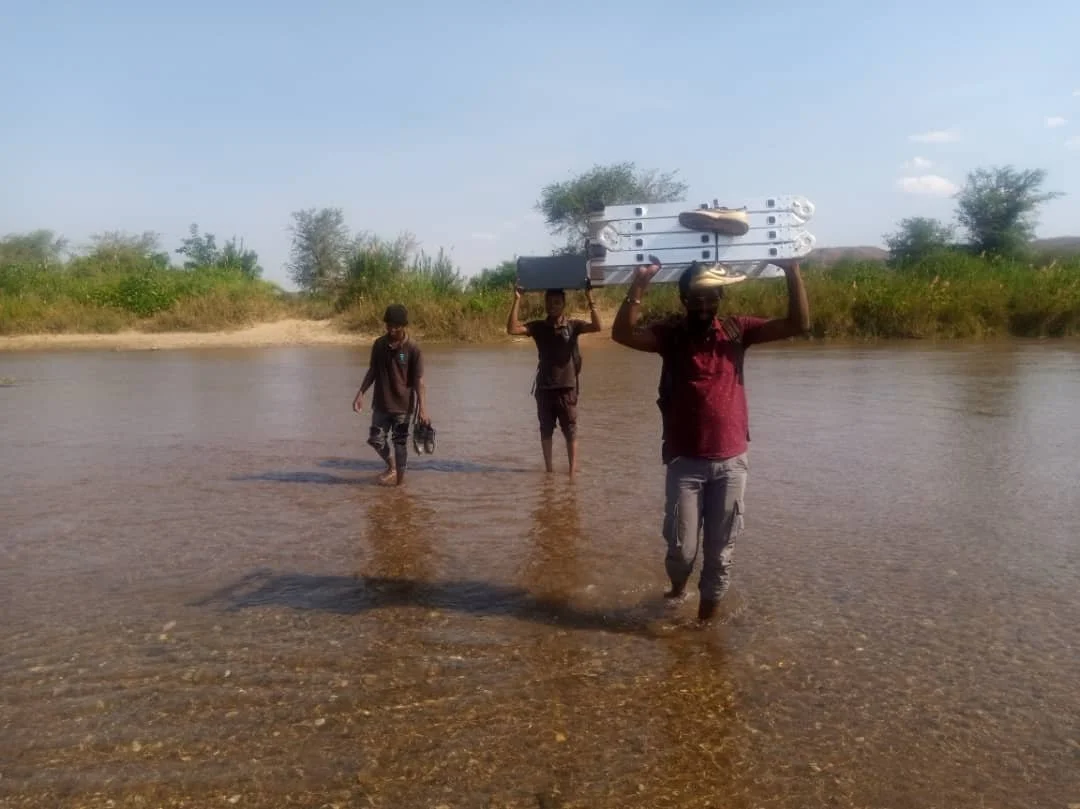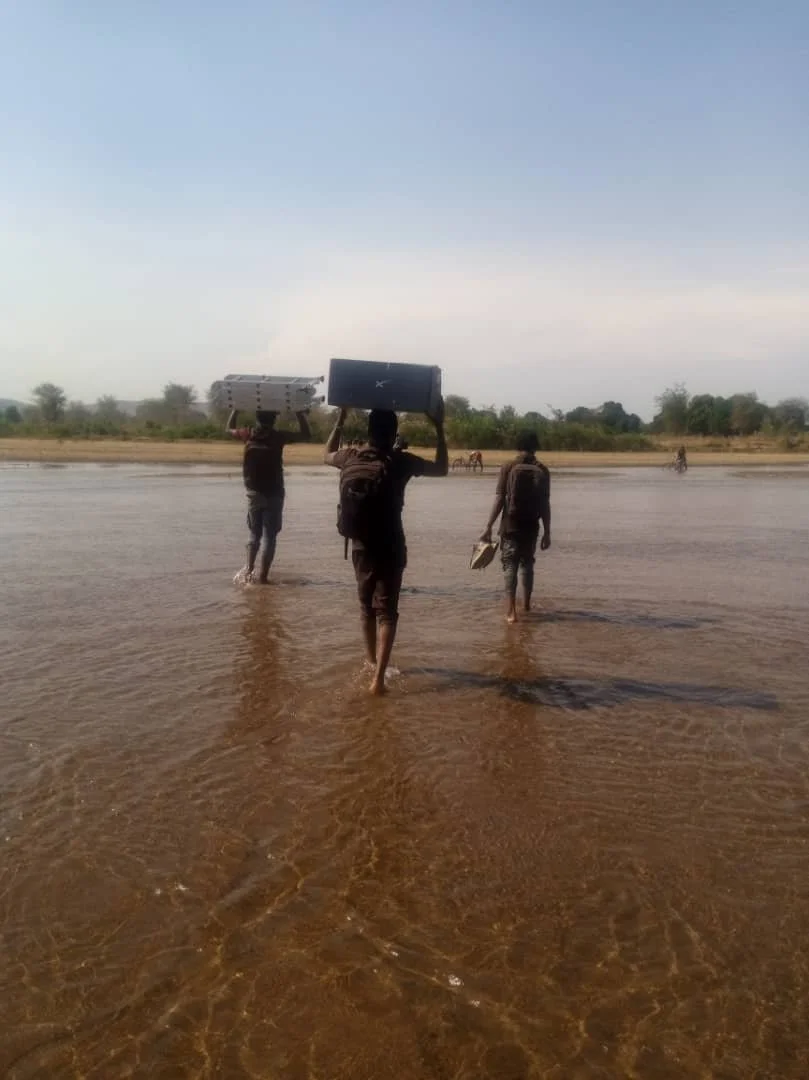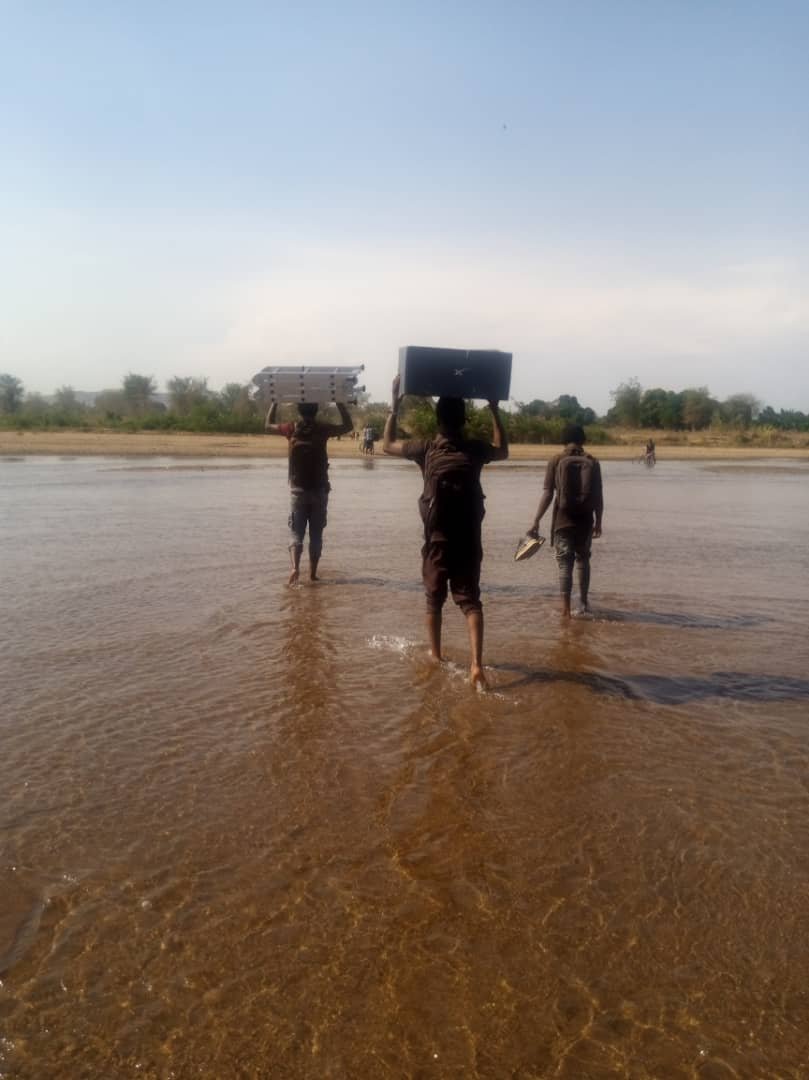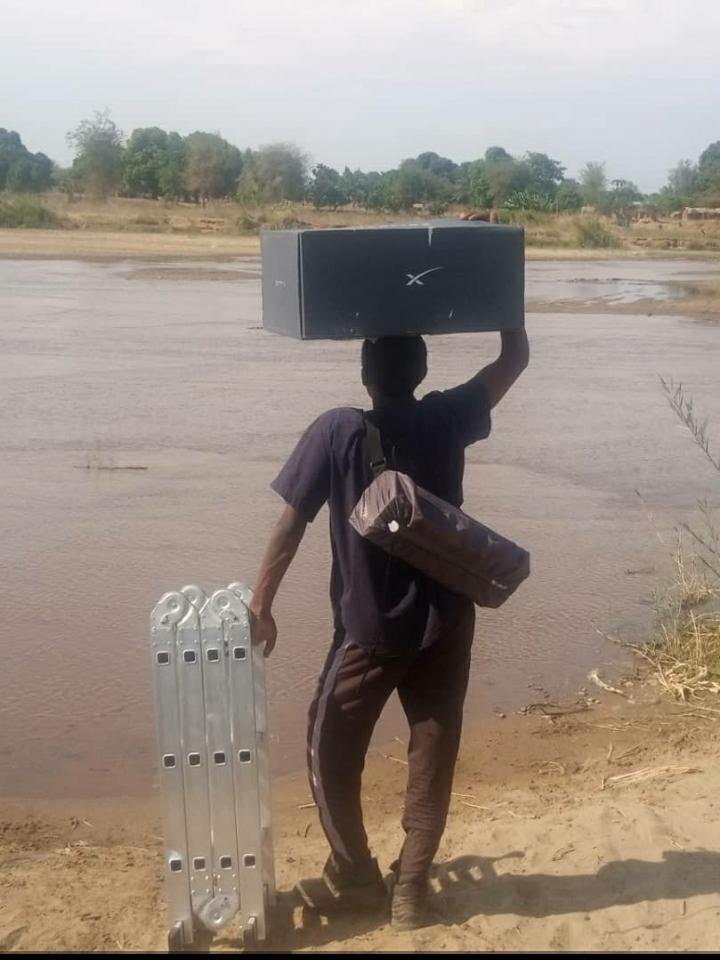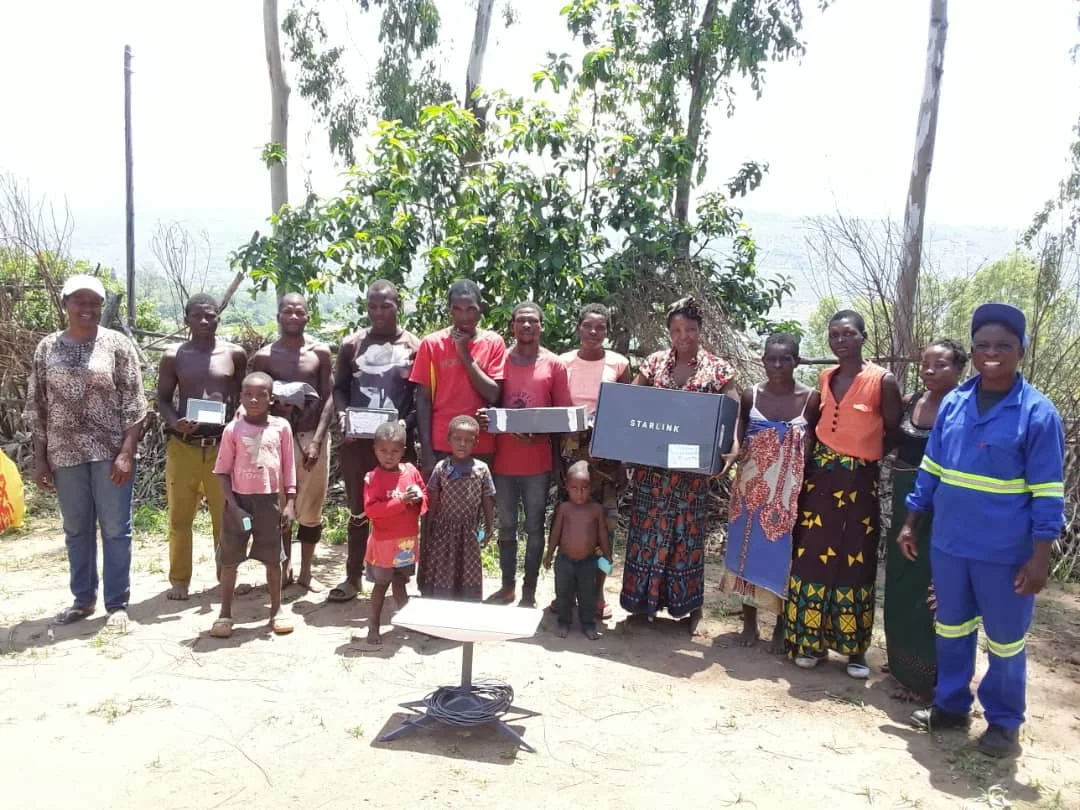Starlink in Malawi - From Box to Docks to Ox
“On top of the world, that was the feeling. Wow! You have given a chance to these people, they can show you wonders within a few minutes; they are able to understand how to move a mouse and they are able to use one finger to write their name on a Microsoft Word document.”
These words of joy come from the lips of Barros Mweso, CEO of Fast Networks, unconnected.orgs implementation partner on the ground in Malawi.
Mweso helped install the first Starlink dishes at the Lupaso Telecentre and has firsthand experience of the incredible impact that digital inclusion has in rural communities in Africa.
Though futuristic sounding in its name, bringing high-speed internet to the community digital hub at the Lupaso Telecentre, was certainly not a straightforward task.
Empowering a community of 10,000 people across nine villages by granting them access to the internet for the first time was a mission that Mweso had dreamt of and studied for over a decade, but at various points installing internet in rural Malawi seemed a hurdle too high to jump.
After a 25-year stint studying and working as an engineer connecting townships like Soweto in South Africa to the internet, inspired by the benefits that the Internet had brought to South Africa during the Covid-19 pandemic, Mweso decided it was time to return to Malawi.
“I had been following it up, I knew it was a disaster back at home,” said Mweso.
The 44 year old engineer had a dream to connect “the villages where they don’t even know what a computer is”.
“We were taught at school that when you stand in front of a computer it would talk to you automatically, so I was a little bit scared to look at the computer”, joking that, “oh wow, this thing it’s going to tell me who I am!”
Foundational digital education is a topic close to Mweso’s heart; he shared that he had never seen a computer in Malawi despite growing up living in the commercial cities of Blantyre, Mzuzu as well as the capital Lilongwe, and therefore only saw one for the first time after he had moved to South Africa in 1998.
Upon his return in 2021 Mweso and his team began to set up TV White Space technology (TVWS) to transmit data to villages in Malawi like Mwandenge in which there are TV frequencies that are no longer being utilised.
Before partnering up with Starlink, implementing programmes of foundational digital literacy in schools like Lusako Primary School in Karonga District was not only a challenge due to the fact that the internet capacity Fast Networks were using was both ‘too low’ and ‘extremely expensive’, but also were drawn out by the Community Sponsored Digitalisation (CSD) model Fast Networks abide by.
The CSD model is integral to achieving Fast Networks’ mission of bringing ‘responsibility to the village’ as it seeks to respect cultural norms whilst empowering villagers with ‘the fourth industrial revolution’.
The model entails that Fast Networks meet the regional chiefs to convince them of the benefits of digital activity in the villages.
He explained that: “a lot of ICT and digital activities in Malawi were run by NGOs, who most of them have no idea about connectivity, about digital literacy or about foundational digital literacy.
“They get computers from the UK and other countries from all over the world and bring them over to Malawi as a dumping place not giving the people the tools for Malawians to benefit.”
Mweso suggests that NGOs often lack a “cultural understanding”, going on to clarify that “[in] our culture as African people, the Chief is a head and is a last decision maker; once you convince the chief you have the deal.”
Like always, before setting off on an immensely arduous voyage to deploy the first Starlink devices at the Lupaso Telecentre, Mweso and his team had to ensure the complicated cultural and bureaucratic steps were firmly established under CSD.
Once the chief is convinced he must select members of the community to be part of the ‘digital committee’ who are responsible for digital literacy, ensuring that there is sufficient access to devices and that the digital access will bring the relevant content that members of the ville would benefit most from.
Mweso cites e-commerce as an often desired tool that villages want to connect to as it serves as a potential mitigation against the current state of exploitation that many subsistence farmers suffer from in which outsiders looking to make a quick profit come to the villages to buy produce like maize, bananas and rice at unethical prices before selling them in the cities.
“In Malawi the way it is set is that the means of production is in the village," he explained “we eat a lot of food that is produced in the villages.”
“With Starlink coming in there we are going to connect the city buyers to the real producers of those products”.
In the case of Lupaso there was still trepidation from those in the surrounding nine villages who were worried that the digital committee would 'take over the centre' and 'steal computers', as the former local organising committee who were made responsible for the centre after its formation in 2012 had left the local population with scars after they had ‘eaten the money’ and abandoned the centre.
Once hearts and minds were won over, Mweso and his team had to figure out how they were going to bring their equipment to such a remote location.
He explained that there is one road to travel down but it is very far and expensive to commute through, so instead, Mweso opted for the shortcut crossing the Rukuru river.
Unfortunately Fast Networks did not have a boat to hand, so had to rely on the support of three expert swimmers who pushed their mode of transport from left to right - which in this case were two oxes with their carts!
Mweso laughed: “I was a bit worried, you know you cannot control an ox, an ox can just jump around and leave the cart in the water.”
Aboard the oxcarts were one Starlink dish, two boxes with drill machines, tools, a generator set and perhaps most importantly for Fast Networks’ their own metal folding ladder.
This is because at Lupaso there are only ‘traditional ladders made from wood which are quite dangerous [which] you can fall at any given time’.
Upon installation the community were ‘lighting up’ in excitement and Mweso was excited as he knew how fast the connection would be at 200-300 megabytes per second.
“The installation process is 20 minutes, with Starlink it is not a difficult technology, it is just quick, where you take time is drilling, putting brackets, but when it comes to alignment, it is an automation alignment so you don’t struggle,” Mweso explained.
In a space that can handle 40 computers, Mweso found 20 with only half of them working; though Mweso hopes to find more he recognised that even with just 10 computers there are numerous beneficiaries to the community hub.
“The learners from the ages of 7-16 are getting to that lab for free ICT training - that is the rule of the engagement.
“Those older than 18 upwards are paying a little bit…so that we can bring sustainability and accountability that this is their centre; they are putting a little bit $0.50 into the telecentre, that is the whole approach there.”
The Lupaso Telecentre has big plans for the villagers who each reside around 4km from the centre.
They want to reopen the library, want to launch an amphitheatre for young learners to watch educational programmes by streaming youtube videos and wish to create a tuck shop too.
Mweso views there to be great possibilities in creating global digital inclusion “if the regulatory frameworks are accommodating to enable us”, adding that given the right tools “everywhere in the world everyone can be digitally literate”.
He is also confident that much like the soil in Malawi that sprouts cassava and sweet potatoes ‘digital has got a fertile ground to grow’.
This is because he views Malawi as a peaceful country in which it is easier to implement such projects than in a war-torn nation.
He is also optimistic because he now sees the regulatory authorities pushing for community networks and trying to lower the cost of data.
Having worked in other African nations like Lesotho, Eswatini and South Africa, he sees even greater potential in Malawi.
“I want Malawi to be like South Africa in terms of digitalisation because we are a small country with only 19 million people and with a collective togetherness with organisations like unconnected.org who have got the vision to connect 1 billion people we can surpass South Africa, absolutely we can do that, I am positive about it.”
As Mweso sets off on his next difficult journey down gravel roads from Mzuzu to arrive to the remote Chisala Secondary School to set up more Starlink devices, he mused that ‘these young learners they don’t know about computers, they had never touched a keyboard’ and he does not want this generation to face the same struggles he had several decades ago.
Buoyed by the success of the work seen at the Lupaso Telecentre, Mweso is determined to make plenty more meaningful connections like these in remote areas all across the country.
“Digital education in Malawi is expensive. These are poor villages, these are people that are not working, these are subsistence farmers, for them to take their children to college to study computers they cannot afford [it].
“So the impact is quite huge, you find people that have got talent but their parents wouldn’t afford to take them to college to study computers, so the telecentre itself is an enabler.”
He elaborated that digital technology can help reduce brain drain to the big cities and can give greater power to the villages financially thanks to partnerships with companies they are in talks with in the UK for whom the villagers could start working in online support roles.
He continued “ With the coming of the internet in these villages you have local experience that can change their world and their environment, they no longer have to look for jobs in the cities.
“It becomes an enabler of a lot of things for those young learners.”

